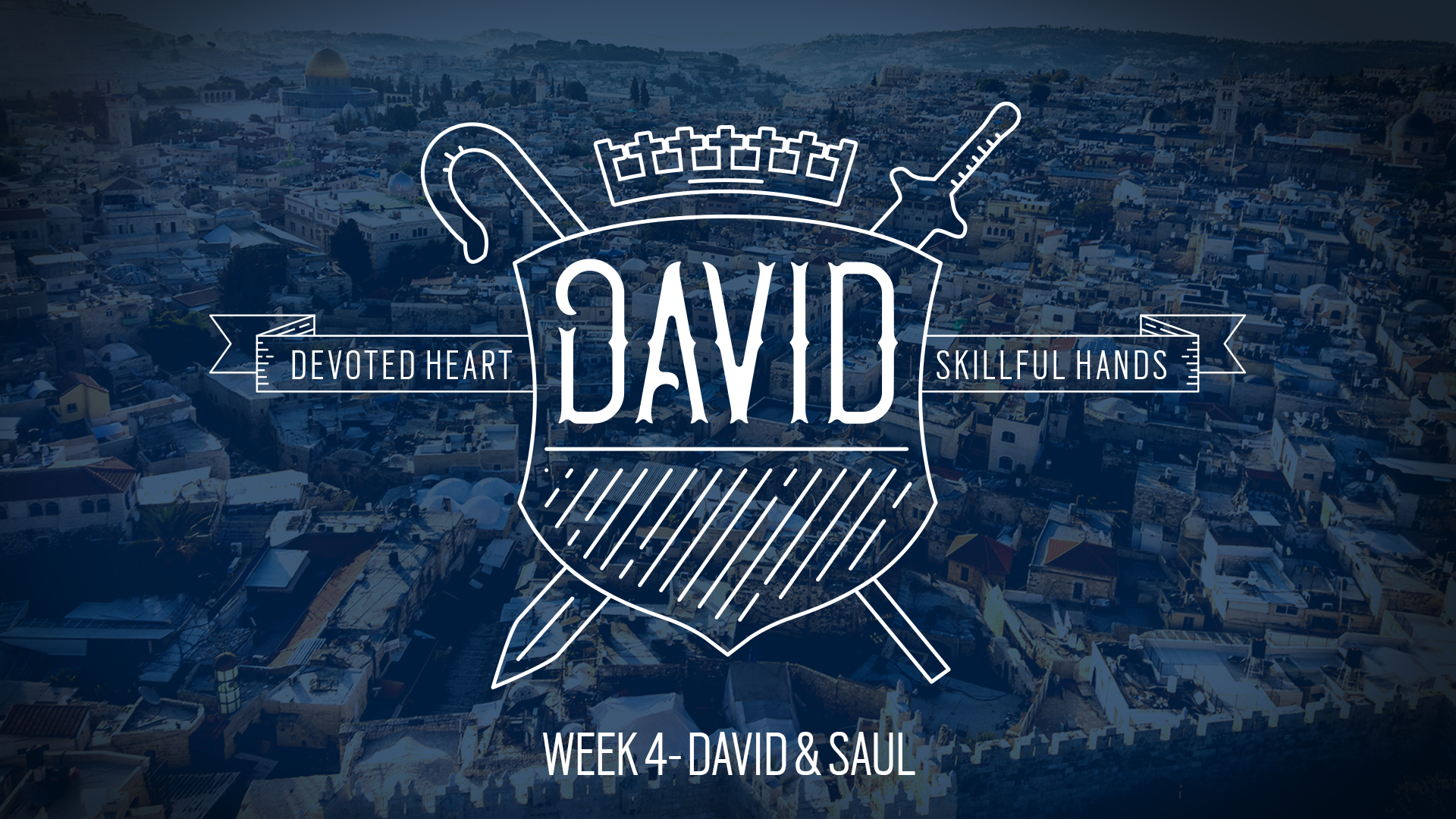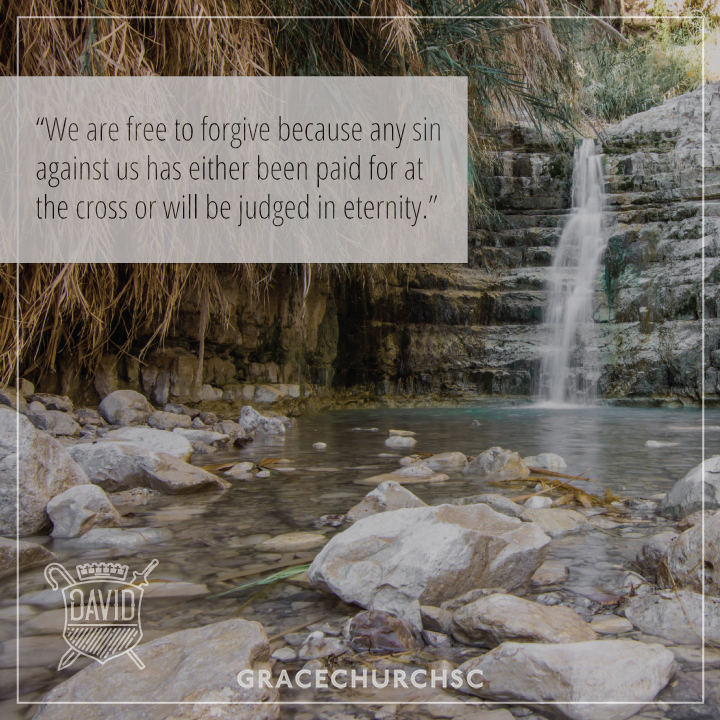
25 Oct Sermon Recap | The Life of David | David & Saul
While the encounter between David and Goliath is a demonstration of David’s faith, the encounter between David and Saul in the cave shows David’s deep desire to follow God’s plan. When Saul enters the very cave that David and his men are using to hide from Saul and his army, David is conflicted with the seemingly opportune moment to kill his enemy. We see that David’s heart is set on God when, instead of taking the “opportunity” to kill Saul, he instead cuts off a piece of Saul’s robe and withstands the test from God. Although David gives into his own desires in this small way, he is troubled about having given in at all. David chooses to trust in God’s plan and the fact that God had anointed Saul as king rather than accelerate his own kingdom by taking matters into his own hands. David puts God at the center of the situation, trusts Him with the ultimate justice and vengeance of Saul, and is able to forgive his enemy without repentance from him or reconciliation.
Scripture References
1. When David finds himself in a place of power and control over Saul, his character is revealed as he stays in line with God’s will instead of taking the situation into his own hands. What is revealed about you when you find yourself in a position of power or authority over someone who has hurt you? Have you acted like David, without vengeance? Or have you taken an opportunity for retaliation that contradicted God’s will based on the pressures of others or your own sense of justice?
2. When you want things to go your way, have you ever tried to claim it as a “God thing” or manipulate what God wants you to do to cover up your vain desires? When things don’t go your way, do you find yourself blaming God or obeying and trusting Him, even when it doesn’t make sense?
3. We can take on one of these two worldviews: I am the center of the universe or God is the center. When I am the center, I try and qualify and justify myself to do something against God’s will. When God is the center, none of the logic, reasoning, or excuses matter. The only thing that matters is that God is Sovereign and He is in control. What situations have you put yourself in the center of? How can you put God in the center instead, and how would that affect your life and attitude?
4. David obeys God even when it is not in his best interest. Can you obey when it means circumstances may not go well for you? When getting justice makes sense, are you able to deny yourself? Think about a situation in your life where you might need to deny yourself instead of seeking justice.
5. When you are stuck in sin, you must be willing to confess and start the process of repentance in order to be healed. This must be done in community; it is not simply a private prayer asking for deliverance. In what ways has community played an important role in helping you begin turning away from your sin?
6. The process of forgiveness starts with confession, leading to repentance, and then reconciliation. Are you a slave to your sin, constantly confessing but not willing to repent and humble your heart? Does it make you uneasy that we are called to forgive even if there is no confession, repentance, or reconciliation from the other person? How has this tension played out in your life?
Thoughts to Consider
-When your will and desires align with what you perceive to be God’s will, you have to be careful that you are not deceived. Our motives are complicated. In time, we discover what those motives are and are able to see how God’s will lined up with ours’.
-The godly person of power never forgets that he is not alone— God is at the center of the situation.
-When you put yourself in the center of the situation, it brings about the short term results of satisfaction, control, and relief of tension. When God is the center, you remain vulnerable, and the tension persists. This is where God wants us to be.
-Confession is not the same as repentance. David and Saul don’t leave in peace because Saul has only confessed, but he hasn’t repented. True reconciliation requires repentance.
-True repentance will be revealed by your actions over time. Repentance is a form of death; It is painful, but necessary to regain trust. Confessions are meaningless without actions to back them up.
-The violence of this situation between David and Saul may not be prevalent in our own lives, but we often seek to take vengeance through gossip and slander. We sin in the process when we try to bring justice because we are not as righteous as we think we are.
-We are free to forgive when someone has sinned against us even if they have not repented and there is no reconciliation. If the other person is a Christian, their sins have been nailed to the same cross yours have. If the other person is not a Christian, their eternity will bring justice.
-We may think there is always time to repent and turn away from our sin in the future. But there is a warning for us in this story—our hearts may become so hardened towards God that there is no turning back.

“We are free to forgive. Sin against us has either been paid for on the cross or will be in eternity. “
“When God opens a door, it may be a test instead of an opportunity.“
“The way we live our lives proves or disproves our repentance.”
“When you think God’s will lines up with yours, be careful that you are not deceived.“
“There is a place for vengeance and justice, but it is God’s job to bring it about—not ours.“



